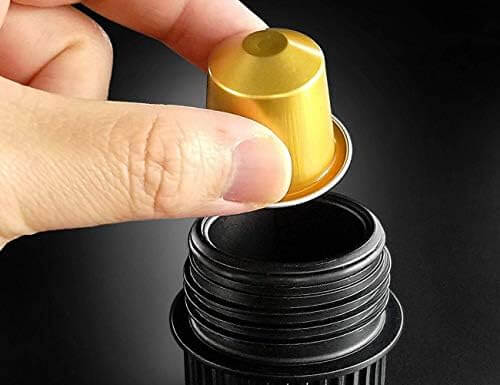Goodbye Plastic: Why Biodegradable coffee pods are Gaining Popularity
With the increased focus on environmental sustainability, many consumers are seeking out eco-friendly alternatives to daily products. One area where this trend is particularly evident is in the coffee industry. Single-use plastic coffee pods have come under scrutiny for their negative impact on the environment, leading to a growing demand for biodegradable coffee pods. In this article, we will explore the reasons behind the shift towards biodegradable coffee pods and address common questions about their usage.
Environmental Impact of Plastic Coffee Pods
Traditional plastic coffee pods have been a staple in many households for years, offering convenience and variety in brewing individual servings of coffee. However, their environmental impact cannot be overlooked. Made from non-biodegradable plastic, these pods contribute to the growing issue of plastic pollution. Once used, they often end up in landfills where they can take hundreds of years to decompose, releasing harmful chemicals and microplastics into the environment.
Benefits of Biodegradable Coffee Pods
Biodegradable coffee pods, on the other hand, are designed to break down naturally, reducing their impact on the environment. Made from plant-based materials such as cornstarch, sugar cane, or paper, these pods offer a more sustainable alternative to plastic. They decompose over time, leaving behind only organic matter that can be safely absorbed by the environment. As a result, many environmentally conscious consumers are making the switch to biodegradable coffee pods to reduce their ecological footprint.
FAQs
Q: Are biodegradable coffee pods compatible with all coffee machines?
A: Biodegradable coffee pods come in a variety of shapes and sizes to accommodate different coffee machines. However, it is important to check the compatibility of the pods with your specific machine before purchasing. Many manufacturers offer a range of biodegradable pods that are designed to work with popular coffee machines.
Q: Do biodegradable coffee pods affect the taste of the coffee?
A: The material used in biodegradable coffee pods is carefully selected to ensure that it does not compromise the flavor of the coffee. Many users have reported that the taste of coffee brewed using biodegradable pods is comparable to that of traditional plastic pods. Additionally, some argue that the use of biodegradable materials may even enhance the overall coffee experience, as it reflects a commitment to sustainability.
Q: How long does it take for biodegradable coffee pods to decompose?
A: The decomposition rate of biodegradable coffee pods can vary depending on the specific material used and environmental conditions. In general, these pods are designed to break down within a few months to a year under the right conditions. Proper disposal methods, such as composting, can help accelerate the decomposition process and minimize their environmental impact.
Q: Are biodegradable coffee pods more expensive than traditional plastic pods?
A: While biodegradable coffee pods may initially come with a slightly higher price tag, the long-term benefits of reducing environmental impact make them a worthwhile investment for many consumers. As demand for biodegradable options continues to grow, the cost of these pods is likely to become more competitive with traditional plastic pods.
Conclusion
The shift towards biodegradable coffee pods reflects a broader movement towards sustainability in consumer products. As more people become aware of the environmental impact of single-use plastics, there is a growing demand for eco-friendly alternatives. Biodegradable coffee pods offer an effective solution to reduce waste and minimize the ecological footprint of coffee consumption. By choosing biodegradable options, consumers can enjoy their daily coffee indulgence while contributing to a healthier planet.
“All images and products featured on this Blog.troca.cafe are the property of their respective owners. All rights to these materials are acknowledged and reserved.”
